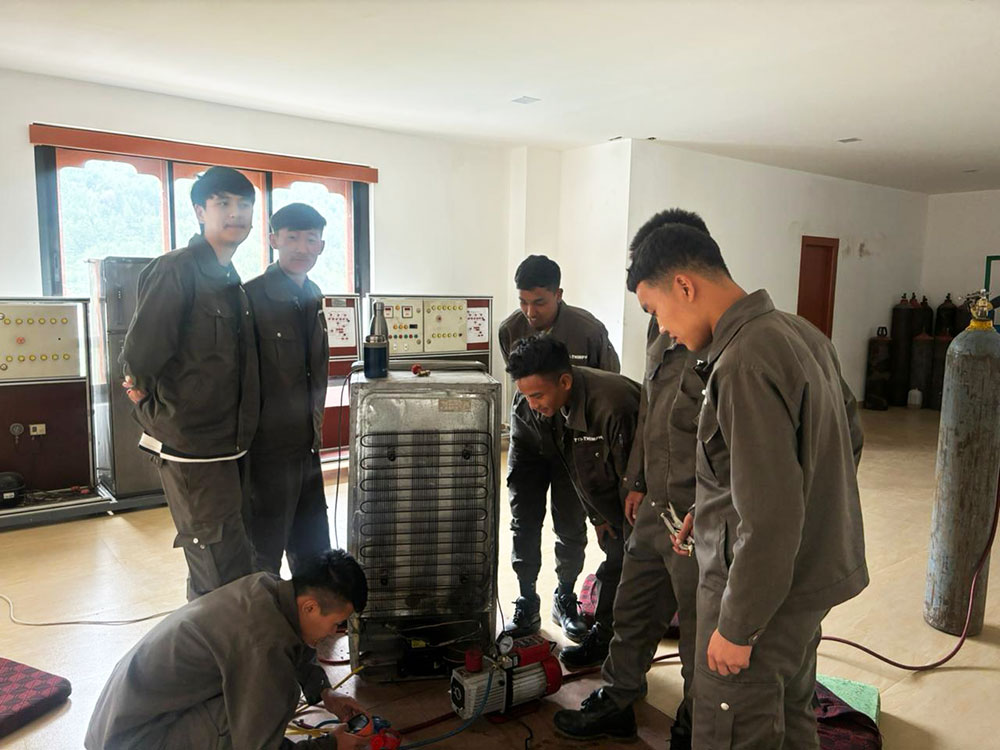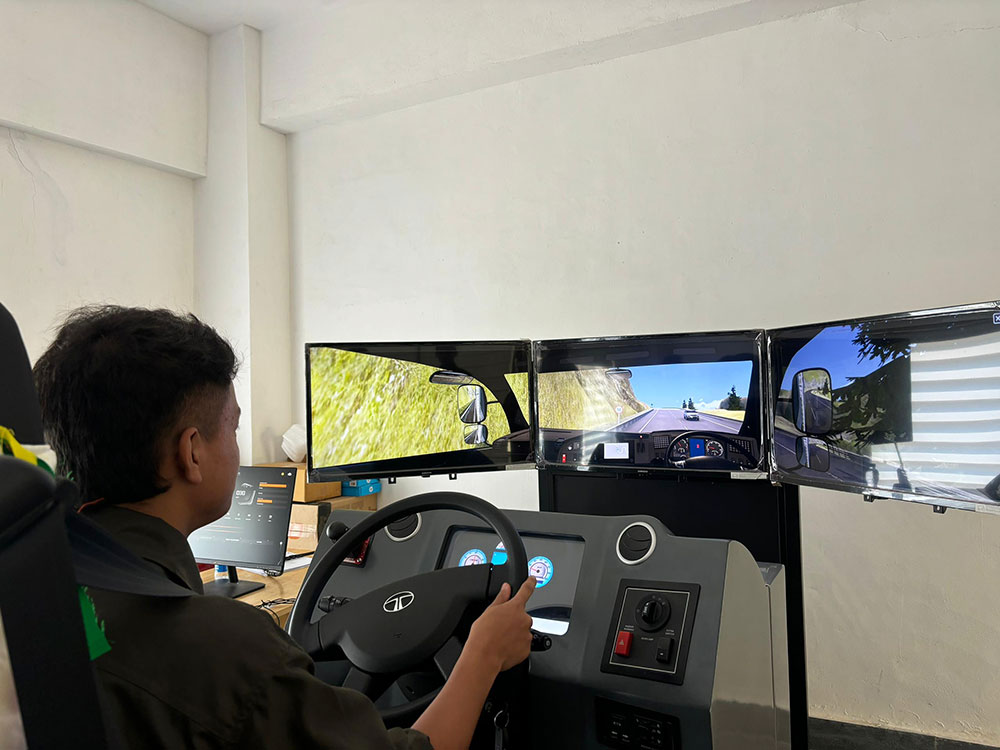Yangyel Lhaden
In the sprawling workshop at the new Serbithang Technical Training Institute (TTI), a group of trainees is huddled around a refrigerator—learning how to fix it piece by piece.
Among them is 19-year-old Jigme Tenzin Rabgay, whose aspirations extend far beyond the confines of this workshop. After finishing Class X, he tried for an Australian visa but got rejected. Now, he is learning new skills that could take him abroad. “I will apply again,” he says, with unwavering resolve. “In Australia, you can make AUD 50 an hour fixing appliances.”
But even if Australia does not happen, he has other plans up his sleeves. “I will open my own electrical shop here,” he grins. “There is good money in it.”
Another trainee, Jambay Dorji, enrolled at the TTI after not qualifying for college. “The new facilities offer a refreshing change and a more effective learning environment compared to the previous institute located at the City Bus Services (CBS) office,” he says.

The Serbithang TTI has 110 students—seven female and 103 male—and offers courses in auto mechanics, panel beating, auto painting, refrigeration and air conditioning, and auto electrics. New courses such as graphic design and heating, ventilation, and automotive technology, are also in the pipeline.
The Serbithang TTI was constructed at the cost of Nu. 419.20 million on a 6.77-acre land. The Asian Development Bank (ADB) funded the construction of Serbithang TTI.
In Punakha, Khuruthang TTI introduced a new course, Computer Numerical Control (CNC), earlier this year, with ADB funding the equipment for the course.
The CNC Machinist Course Instructor at Khuruthang TTI, Johan Lorsson, said that CNC machining skills allow you to create almost anything you can imagine. “The machine uses programming and coding to make items like door hinges, vehicle parts, or gears.”
What sets CNC machining apart, he added, is its ability to produce highly accurate, precision-made parts, which is crucial for hydropower turbines where exact specifications are essential.
In Bhutan, Bhutan Hydropower Services Limited (BHSL) uses CNC machine to produce parts for hydropower projects.
Twenty-year-old Pema Dendup, a CNC trainee, dreams of working for BHSL one day. He was searching for a job when he applied to BHSL, but an official advised him to gain relevant skills first. That’s when he discovered the CNC course and enrolled.
“It almost feels like fate that I got the chance to learn a course related to the works of BHSL,” he said. “I am loving the programming and machine learning experience, and I want to work in this field in the future.”
There are currently nine students in the CNC machinist course, and they will be the first batch to graduate early next year.
At Samthang TTI, the introduction of driving simulators funded by ADB has transformed heavy vehicle training. This driving simulator offers a safer, cost-effective way for trainees to learn heavy vehicle operation.
Previously, students had to get hands-on experience with actual vehicles, which was costly and logistically challenging.
The introduction of these simulators has not only enhanced the learning experience but also cut costs for the institute. Previously, the cost of training was around Nu 10,000 per week for fuel and Nu 40,000 for earthmovers. Now, those expenses have been significantly reduced.
“The ADB support has been crucial in equipping TTIs in the country with facilities and courses to provide valuable skills to Bhutanese youth,” Serbithang TTI principal Sonam Wangmo said.


